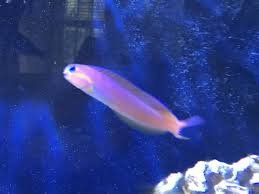Dragons and Cultural Beliefs in Rural Chinese Villages
Dragons hold a sacred and deeply rooted place in Chinese culture, influencing various aspects of life, including spirituality, folklore, rituals, and village traditions. While urban China has modernized, rural villages have preserved ancient dragon-related customs, maintaining the dragon’s presence in festivals, religious practices, and everyday life.
This article explores the role of dragons in rural Chinese villages, examining their spiritual significance, ceremonial traditions, agricultural influences, and community beliefs that have lasted for centuries.
1. The Dragon as a Divine Protector of Rural Communities
In rural China, dragons are viewed as divine guardians that protect villages from natural disasters, misfortune, and malevolent spirits. Unlike the Western depiction of dragons as fierce creatures, Chinese dragons are seen as benevolent, wise, and life-giving beings.
Sacred Dragon Temples in Villages
- Many villages have small temples dedicated to dragons, known as “Long Wang Miao” (龙王庙 – Dragon King Temples).
- These temples serve as places where villagers pray for rain, protection from floods, and agricultural prosperity.
- Farmers offer incense, food, and handmade dragon figurines to seek blessings from the dragon spirits.
The Dragon as a Guardian of Water
- Since dragons are closely linked to water, rural communities near rivers, lakes, and ponds often believe that a “river dragon” (Shui Long, 水龙) resides in these bodies of water.
- Villagers perform rituals and sacrifices to these river dragons to prevent droughts and floods.
- In some villages, priests or elders “speak to the dragon” in ceremonies to ask for rainfall.
The Dragon and Village Protection Rituals
- Some villages place dragon statues or dragon paintings at village entrances to ward off evil spirits.
- Local legends tell of dragons defending villages from invaders or natural calamities.
- Before major village events, elders conduct rituals to awaken the dragon’s spirit, ensuring safety and good fortune.
2. Dragon Festivals in Rural China
Festivals celebrating dragons remain one of the most colorful and vibrant aspects of rural Chinese culture. These events honor the dragon as a symbol of strength, unity, and prosperity.
The Dragon Boat Festival (端午节 – Duanwu Jie)
- One of the most famous dragon-related festivals, celebrated especially in southern Chinese villages.
- Originated from ancient water dragon worship and later became linked to the poet Qu Yuan.
- Villagers race long dragon-shaped boats on rivers to honor water dragons and ancestors.
- People prepare zongzi (sticky rice dumplings) and make offerings to the river dragons for bountiful harvests.
Village-Specific Dragon Worship Festivals
- In some Hunan and Fujian villages, unique Dragon Blessing Festivals are held where villagers carry dragon statues through the streets while chanting prayers.
- In Guangxi, local fishermen celebrate the Sea Dragon Festival, thanking the dragon for protecting their boats from storms.
- Some rural areas hold Dragon Rain Rituals, where farmers reenact the dragon’s dance to attract rainfall.
3. Dragons and Agricultural Beliefs in Rural China
Dragons are deeply intertwined with agriculture, as they are seen as controllers of rain and harvest cycles. Many farming traditions still revolve around pleasing the dragon spirit for good weather and fertile land.
Dragon-Inspired Farming Practices
- Farmers time their planting seasons according to dragon-related zodiac cycles.
- In some regions, before plowing fields, villagers perform a Dragon Awakening Ceremony to ensure good soil conditions.
- Rural farmers believe dragon spirits live in the earth, and disturbing them without proper rituals may bring bad luck and poor crops.
Dragon Dance to Welcome the Harvest
- At the start of the harvest season, villages organize dragon dances in the fields to celebrate fertility and abundance.
- The dance mimics the movement of a dragon, symbolizing wind and rain nourishing the crops.
- Some communities place small dragon figurines near water wells to honor the spirits that bless them with fresh water.
Superstitions About Angering the Dragon
- Farmers avoid whistling at night, as they believe it may disturb the sleeping dragon and bring bad weather.
- Cutting down ancient trees near rivers is considered bad luck, as dragons may reside in them.
- If a rainstorm arrives suddenly, elders say it is a dragon moving through the sky, signifying an important celestial event.
4. The Role of Dragons in Village Folk Beliefs and Superstitions
Villagers hold various folk beliefs about dragons, some of which have been passed down for hundreds of generations.
The Dragon and Birth Superstitions
- Children born in the Year of the Dragon are believed to be strong, wise, and destined for greatness.
- Pregnant women in some villages tie red threads with dragon symbols around their waists for protection.
- Newborns are sometimes given dragon-patterned blankets to bless them with strength.
Dragons and Marriage Rituals
- Many wedding ceremonies feature dragon and phoenix imagery, symbolizing balance and harmony.
- In some villages, couples are blessed under a “Dragon Tree,” an ancient tree believed to have dragon energy.
- If a marriage ceremony is delayed due to a thunderstorm, elders say it is because a dragon is watching over the couple, ensuring a fortunate union.
Dragons in Death and Ancestral Worship
- Some villages believe that after death, noble souls ascend to the heavens on the back of a dragon.
- Certain ancestral tombs are designed in the shape of a dragon’s curve, ensuring prosperity for future generations.
- Offerings made during Qingming Festival (Tomb-Sweeping Day) sometimes include dragon-shaped pastries or incense to honor past ancestors.
5. Dragon Myths and Legends Passed Down in Villages
The Village That Was Saved by a Dragon
- In a small village in Sichuan, a great flood was believed to be stopped by a golden dragon that emerged from a sacred mountain.
- To this day, villagers burn incense and light lanterns near the river to thank the dragon spirit for protecting them.
The Sleeping Dragon of the Hills
- In Jiangxi, an old legend says a massive dragon sleeps beneath the village hills, and if disturbed, it may cause earthquakes or droughts.
- To keep the dragon peaceful, locals perform a yearly dance and offer food to its resting place.
The Dragon Who Taught Farming
- Some ancient legends tell of a dragon that taught humans how to irrigate land, guiding them on when to plant crops.
- In honor of this, some villages place wooden dragon carvings near irrigation canals to ensure continued agricultural success.
Conclusion: The Dragon’s Lasting Legacy in Rural China
In modern cities, the dragon is often seen as a cultural symbol, but in rural China, its presence is still felt in everyday life, spiritual beliefs, and agricultural traditions. From protecting villages and influencing farming practices to shaping festivals, weddings, and superstitions, the dragon remains a living entity in rural cultural consciousness.
Despite modernization, many villagers continue to honor dragon traditions, proving that this ancient mythical creature is not just a part of the past but an enduring spirit guiding the present and future.


